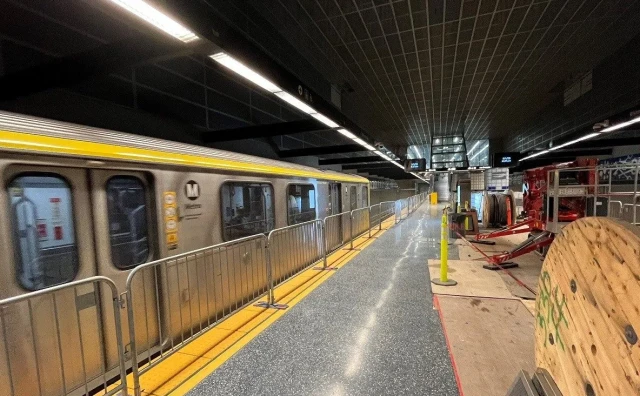With our free press under threat and federal funding for public media gone, your support matters more than ever. Help keep the LAist newsroom strong, become a monthly member or increase your support today during our fall member drive.
The New Steps For Keeping LA's Mentally Ill Jail Inmates Off The Street When They're Released

By Paul Glickman with Alyssa Jeong Perry
The Los Angeles County jail system can be thought of as one of the biggest psychiatric facilities in the country -- fully one out of three inmates has mental health issues.
All too often, when those inmates are released they end up on the streets with no hope for turning their situation around, which means they will very likely end up in jail again, starting the cycle over again.
Now the county has agreed to take several steps to try to stop that revolving door. On Thursday it reached a settlement with a group of former inmates who had sued.
Here are the steps the county now promises to take:
- Work to connect inmates with services before release. Once someone with mental health problems is incarcerated, jail staff will start working with community service providers to develop a plan to provide assistance after the inmate is released.
- Arrange treatment and meds. When an inmate is released he will have a mental health appointment scheduled and a plan for getting there. He will also be given a two-week supply of his medications.
- Provide help getting other services. Jail staff will help inmates get California IDs, apply for Social Security benefits or restart suspended benefits, reunite with family, find housing and get set up with community mental health and other service providers.
Getting all of this done won't be easy, given that an estimated 2,500 to 3,000 inmates with mental health issues leave jail each month.
One problem is that most local governments "don't have enough social services or mental health treatment available for all those who need it," said Dr. Timothy Belavich, director of mental health for the jails.
Hey, thanks. You read the entire story. And we love you for that. Here at LAist, our goal is to cover the stories that matter to you, not advertisers. We don't have paywalls, but we do have payments (aka bills). So if you love independent, local journalism, join us. Let's make the world a better place, together. Donate now.
At LAist, we believe in journalism without censorship and the right of a free press to speak truth to those in power. Our hard-hitting watchdog reporting on local government, climate, and the ongoing housing and homelessness crisis is trustworthy, independent and freely accessible to everyone thanks to the support of readers like you.
But the game has changed: Congress voted to eliminate funding for public media across the country. Here at LAist that means a loss of $1.7 million in our budget every year. We want to assure you that despite growing threats to free press and free speech, LAist will remain a voice you know and trust. Speaking frankly, the amount of reader support we receive will help determine how strong of a newsroom we are going forward to cover the important news in our community.
We’re asking you to stand up for independent reporting that will not be silenced. With more individuals like you supporting this public service, we can continue to provide essential coverage for Southern Californians that you can’t find anywhere else. Become a monthly member today to help sustain this mission.
Thank you for your generous support and belief in the value of independent news.

-
Restaurants share resources in the food hall in West Adams as Los Angeles reckons with increasing restaurant closures.
-
It will be the second national day of protest against President Donald Trump.
-
The university says the compact, as the Trump administration called it, could undermine free inquiry and academic excellence.
-
This is the one time you can do this legally!
-
Metro officials said it will be able to announce an opening date “soon.”
-
While working for the county, the DA’s office alleges that 13 employees fraudulently filed for unemployment, claiming to earn less than $600 a week.







